RCFP’s 2024 year in review
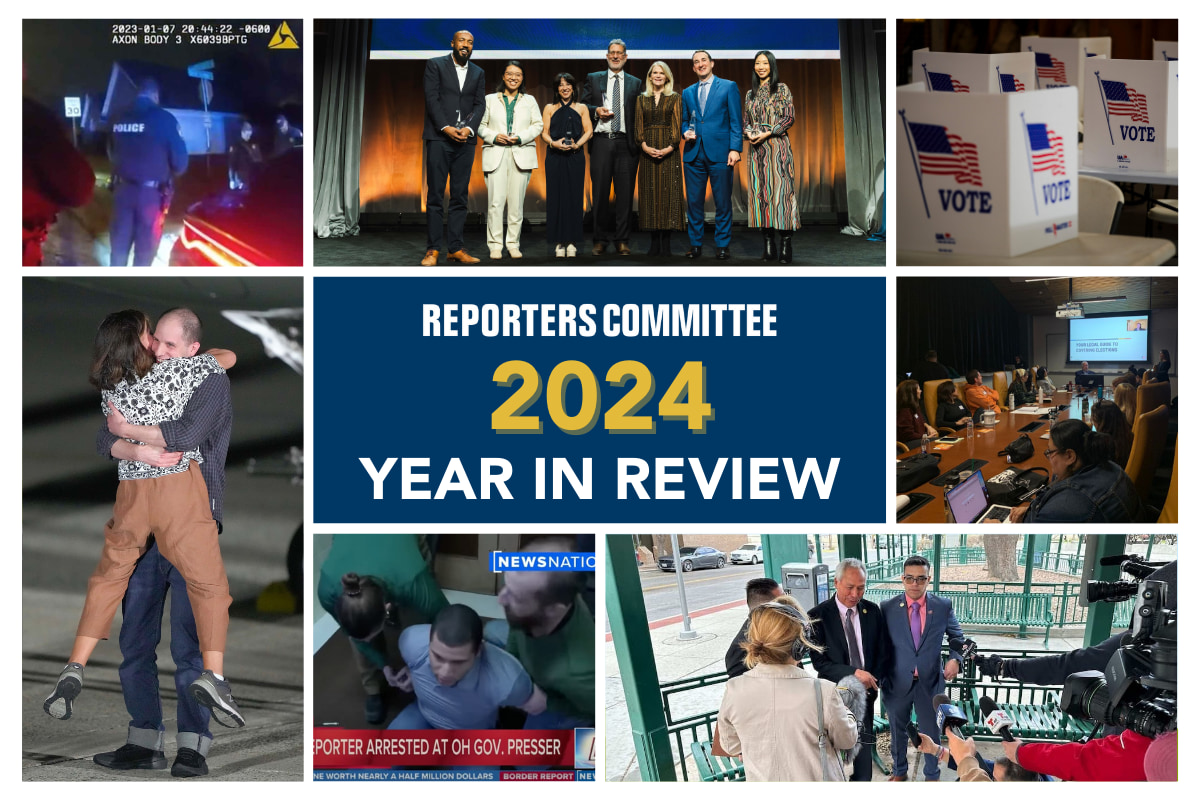
With the 2024 election behind us, the Reporters Committee for Freedom of the Press is looking ahead to Donald Trump’s second term as president and how it will impact press freedom and the public’s right to know.
During his first term in office, Trump called journalists “the enemy of the American people” and repeatedly dismissed their reporting as “fake news”; he celebrated violence against reporters; and his administration monitored journalists at the border and authorized the seizure of their phone and email records as part of leak investigations. And on the campaign trail this year, he threatened to jail journalists and revoke the licenses of news broadcasters.
Fifty-four years after our founding, the Reporters Committee is better positioned today than ever before to protect First Amendment freedoms and the newsgathering rights of journalists, no matter who is in the White House. Our legal team, now more than 20 attorneys strong, has tripled in size in the last eight years. We have critical experience that will bolster the Reporters Committee’s efforts to challenge attempts to silence or punish the press.
But the work ahead will require a broader focus that stretches beyond the White House. It will call for a nationwide effort focused on helping journalists and news outlets shine a light on all levels of government — from city councils and police departments to state houses and federal agencies — and hold public officials accountable to the people they serve.
At the local and national level, Reporters Committee attorneys are prepared to defend journalists against subpoenas for their sources, protect newsrooms facing retaliation and threats for their reporting, and push back against government interference in the very newsgathering activities that keep our communities informed.
If you need proof that the Reporters Committee is ready for the press freedom battles ahead, just look at what we accomplished in 2024.
On behalf of journalists and news organizations, Reporters Committee attorneys litigated more than 60 matters in state and federal courts across the country. They filed new lawsuits against city officials, state agencies, the Pentagon, and more, challenging everything from the sealing of a prison contractor’s wrongful-death settlements to county officials’ refusal to disclose police misconduct records.
In Indiana, Reporters Committee attorneys successfully challenged an unconstitutional police “buffer zone” law. In Pennsylvania, Reporters Committee attorneys helped a local journalist force a county to revise policies that hampered investigative reporting about issues at a local jail. And in Ohio, Reporters Committee attorneys helped a TV reporter hold a city and county accountable for his violent arrest at a press conference.
The free legal support Reporters Committee attorneys provided to journalists and news organizations fueled important investigative reporting — stories that revealed new details about the police killing of Tyre Nichols in Tennessee, exposed oversight issues in Pennsylvania’s medical marijuana program, and provided a fresh perspective on the origins of the Iraq War, through the eyes of Saddam Hussein.
The Reporters Committee’s work in 2024 extended beyond the cases our attorneys directly litigated on behalf of journalists and newsrooms. The Reporters Committee, often joined by large media coalitions, also filed more than 35 friend-of-the-court briefs championing the cause of press freedom.
In state courts, we repeatedly fought for greater government transparency, including the release of police body-worn camera footage. In federal appeals courts, we challenged warrantless cellphone searches at the border and highlighted threats to the editorial independence of the news media. And in the U.S. Supreme Court, we urged the justices to affirm the U.S. Constitution’s most basic guarantee of a free press: the right to ask questions of government officials.
Outside of the courts, Reporters Committee attorneys wrote letters to a police department, a district attorney, and state and federal lawmakers, urging them to protect the newsgathering rights of journalists and the public’s right to access information. They also fielded more than 600 inquiries to our free Legal Hotline, answering journalists’ questions about everything from how to access public records to how to push back against demands for their newsgathering materials.
Through our pre-publication review partnerships, Reporters Committee attorneys vetted 20 investigative articles and documentary films to help journalists reduce their legal risk and feel more confident about pursuing and publishing hard-hitting stories that hold people in power accountable.
Our attorneys trained more than 2,400 journalists, media attorneys, students, and others on a wide range of First Amendment and media law issues, with a strong focus on preparing reporters and newsrooms to cover the 2024 elections.
We also continued to expand ProJourn, our partnership with Microsoft and Davis Wright Tremaine LLP uniting law firms and corporate in-house counsel to train more non-media lawyers and to help journalists and newsrooms with pre-publication review, public records access, and business legal needs. In 2024, attorneys working with ProJourn recorded roughly 1,750 pro bono hours in support of newsgathering and reporting. They also handled 12 public records matters, vetted 55 stories before publication, and led 32 trainings.
And through new partnerships, the Reporters Committee began providing press credentials to newsrooms and training both journalists and law enforcement officials on best practices for police-press interactions during mass demonstrations — related efforts intended to protect journalists covering protests.
In op-eds and special analyses, Reporters Committee attorneys explored the fight against government gatekeeping, the Supreme Court’s recent blockbuster First Amendment cases, and federal agencies’ refusal to confirm or deny the existence of public records. They were also quoted in more than 150 news stories, editorials, and columns, weighing in on everything from a mayor’s habit of deleting texts related to city business to what a second Trump presidency could mean for the news media.
The Reporters Committee accomplished all of this and much more without charging a penny to the journalists and newsrooms we serve. Thanks to the generous support of our donors, the Reporters Committee’s staff continues to grow, making it possible for us to help journalists and newsrooms through many different programs, including our Local Legal Initiative and ProJourn, both generously funded by the John S. and James L. Knight Foundation, and to train the next generation of media attorneys through the First Amendment Clinic at the University of Virginia School of Law, which is run by RCFP attorneys.
Our accomplishments in 2024 give us confidence that we can achieve even more in the year ahead — not just for journalism but for democracy itself.
For a more in-depth look at the Reporters Committee’s year, here’s a recap of the highlights.
Jump to a specific section below to examine our work in that issue area:
Democracy and Elections | Health and Environment | National Security | Policing and Corrections | Technology and Social Media | Celebrating Press Freedom
Democracy and Elections
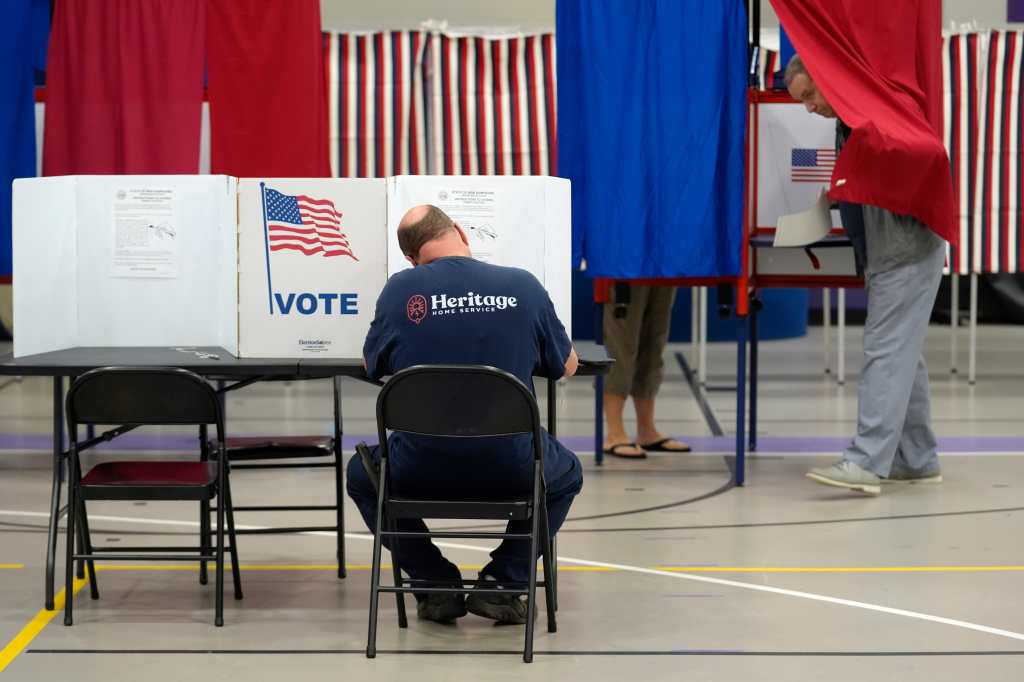
The Reporters Committee worked especially hard this year to make sure that journalists and news organizations were prepared to cover the 2024 elections. Reporters Committee attorneys updated our election-related resources — including our Election Legal Guide (available in English and Spanish) and Police, Protesters, and the Press — answering many of the questions that were top of mind for journalists heading into Election Day.
Throughout the year, Reporters Committee attorneys also led or participated in many trainings focused on making sure that journalists and newsrooms were equipped with the legal knowledge they needed to keep voters informed. In June and July, the Reporters Committee teamed up with the National Press Photographers Association to conduct trainings for journalists reporting on the 2024 national political conventions. And in partnership with the International Women’s Media Foundation, Reporters Committee attorneys helped train more than 700 journalists on newsgathering rights while covering elections and protests as part of IWMF’s Newsroom Safety Across America initiative.
On Election Day, Reporters Committee attorneys provided additional coverage of our free Legal Hotline, and ProJourn connected with attorneys in key states to prepare for potential increased demand for legal support. The Reporters Committee teamed up as a partner organization with Election SOS, an initiative dedicated to supporting U.S. journalists in responding to critical election information needs.
The Reporters Committee, joined by more than 100 media organizations, continued to urge Congress to pass the PRESS Act, a bipartisan shield bill that would establish robust federal protections for the newsgathering rights of journalists.
In letters sent to lawmakers in June and October, the Reporters Committee emphasized the need for legislation that would bar the federal government from using subpoenas, search warrants, or other compulsory actions against journalists to force the disclosure of information identifying confidential sources as well as other newsgathering records, except in very limited circumstances.
“The PRESS Act is a reasonable, common-sense measure to preserve the free flow of information to the public,” the letters argued.
In Colorado, The Sentinel revealed what an Aurora City Council committee discussed during an unlawful closed-door meeting last year concerning the pay and performance of the city’s most senior government employees — reporting made possible by a successful public records lawsuit the newspaper litigated with free legal support from Reporters Committee attorneys and attorney Steve Zansberg.
It’s the second time in recent years that courts in Colorado have concluded that the city of Aurora violated the state’s Open Meetings Law in response to a lawsuit Reporters Committee attorneys helped litigate on The Sentinel’s behalf. As we highlighted in June, the newspaper’s court victories are setting an important precedent for transparency across the state.
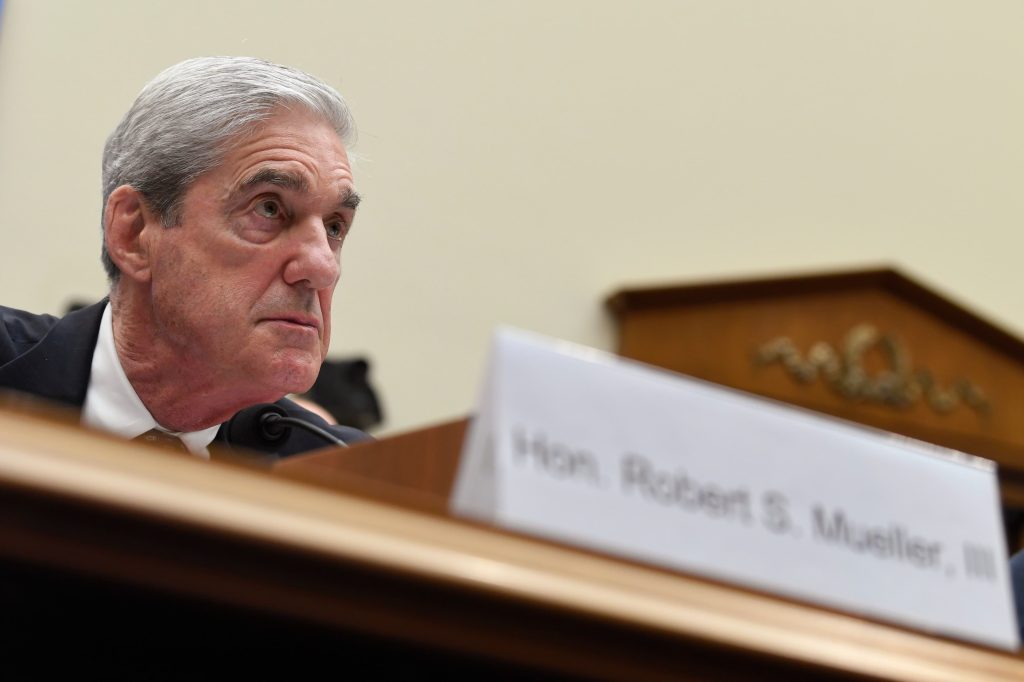
The Reporters Committee and The Washington Post asked two federal district courts to unseal judicial records in separate closed matters that could shed further light on allegations that Egypt sought to financially support the first presidential campaign of Donald Trump.
The unsealing effort followed The Post’s exclusive reporting that revealed that federal investigators, including former special counsel Robert Mueller, led a secret criminal investigation looking into reports that “Egyptian President Abdel Fatah El-Sisi sought to give [then-candidate] Trump $10 million to boost his 2016 presidential campaign.”
The Reporters Committee and The Post, represented by attorneys at Gibson, Dunn & Crutcher LLP, argued in court filings that additional information about the special counsel’s investigation is likely to be found in records that are currently filed under seal in two closed criminal cases, including one in which the Reporters Committee previously argued successfully to unseal redacted versions of certain records.
While a federal court in Virginia denied the motion to unseal, the related unsealing effort in the District of Columbia federal district court is ongoing.
Health and Environment
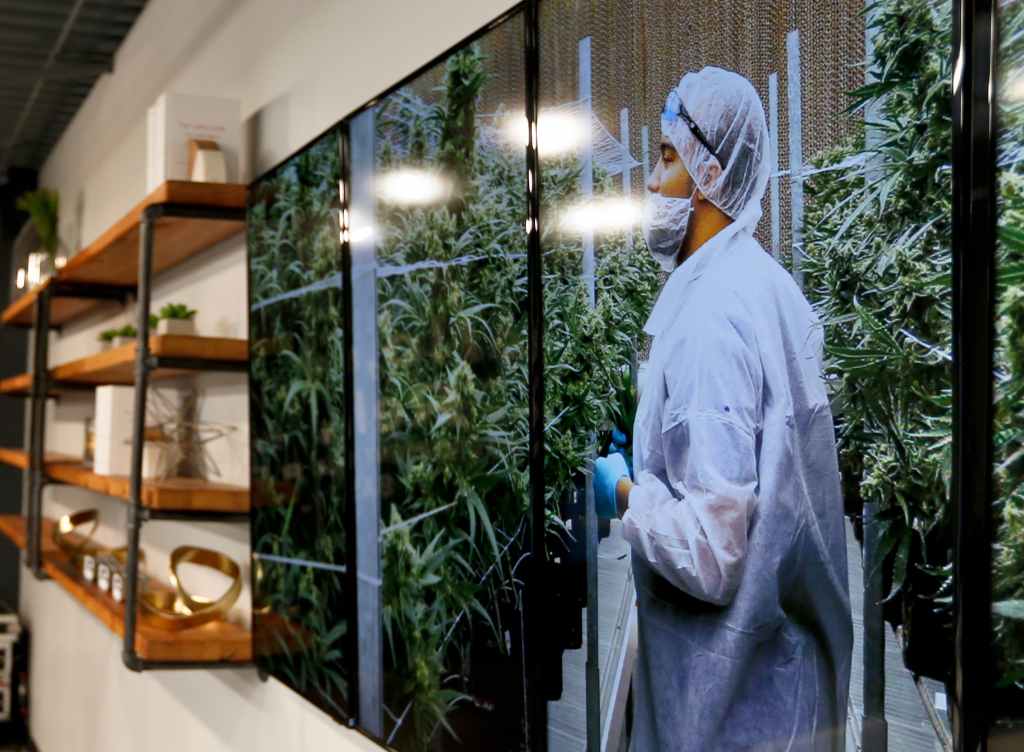
After a Spotlight PA investigation revealed that some of Pennsylvania’s top medical marijuana doctors have a history of misconduct, two state lawmakers said they plan to propose legislation to strengthen the oversight process for doctors seeking authorization to issue medical marijuana cards.
Ed Mahon, an investigative reporter for the nonprofit news outlet, found that the Pennsylvania Department of Health “has rarely blocked practitioners from joining Pennsylvania’s medical program based on past discipline,” including some who have been among the top doctors for issuing medical marijuana certifications. Spotlight PA’s investigation was based in part on data obtained through successful litigation with free legal support from Paula Knudsen Burke, the Reporters Committee’s Local Legal Initiative attorney for Pennsylvania.
Using public records obtained with free legal support from Reporters Committee Staff Attorney Elizabeth Soja, WHQR reported that North Carolina’s environmental protection agency did not hold a chemical manufacturer accountable for missing a deadline to build a barrier wall intended to prevent “forever chemicals” from leaking into a local river.
WHQR reporter Kelly Kenoyer credited Soja and the Reporters Committee with helping her shed light on an environmental project that is critical for the health and safety of the local community. “In many cases, these institutions don’t follow the law because most news outlets don’t have the resources to push back. They just hope the reporters forget about it,” she said. “This was the one request out of dozens that they had legal pressure forcing them to follow through on it.”
National Security
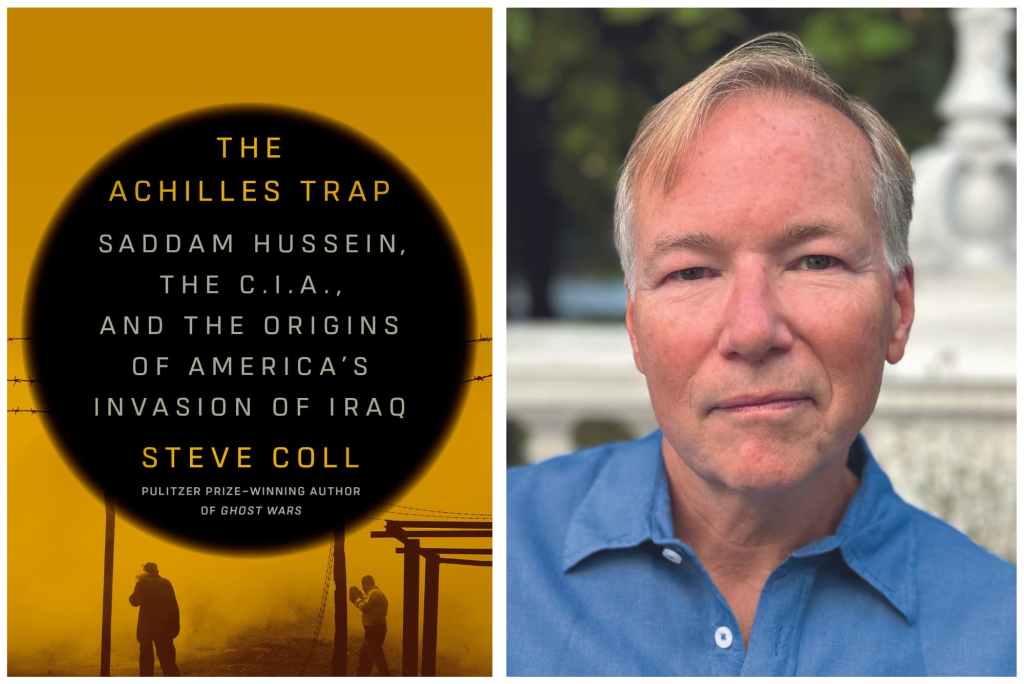
In February, Pulitzer Prize-winning journalist Steve Coll published his latest book, “The Achilles Trap,” chronicling how the United States bungled its way into war in Iraq. Some of the most revealing information in the book comes from transcripts of tape-recorded meetings from inside Saddam Hussein’s regime, including many materials never before published, which were captured by invading U.S. forces.
Coll obtained many of those records after Reporters Committee attorneys helped him litigate and favorably settle a Freedom of Information Act lawsuit against the Pentagon. As he explained in an interview, those records provided the book’s narrative voice and helped him better understand Hussein’s long struggle with Washington.
“The Reporters Committee was just invaluable to this whole project,” Coll said. “It was a huge gift to have that collaboration.”
Military.com published an investigation exploring cancer cases among missileers at nuclear missile facilities. In explaining its reporting process behind the story, the news outlet noted that Reporters Committee attorneys helped reporters gather information through public records requests.
“With guidance from the Reporters Committee for Freedom of the Press … we sought past studies and records that could have revealed earlier worries and indications,” reporter Thomas Novelly wrote. “That search revealed documents showing that concerns over carcinogens at those facilities had been raised decades prior.”
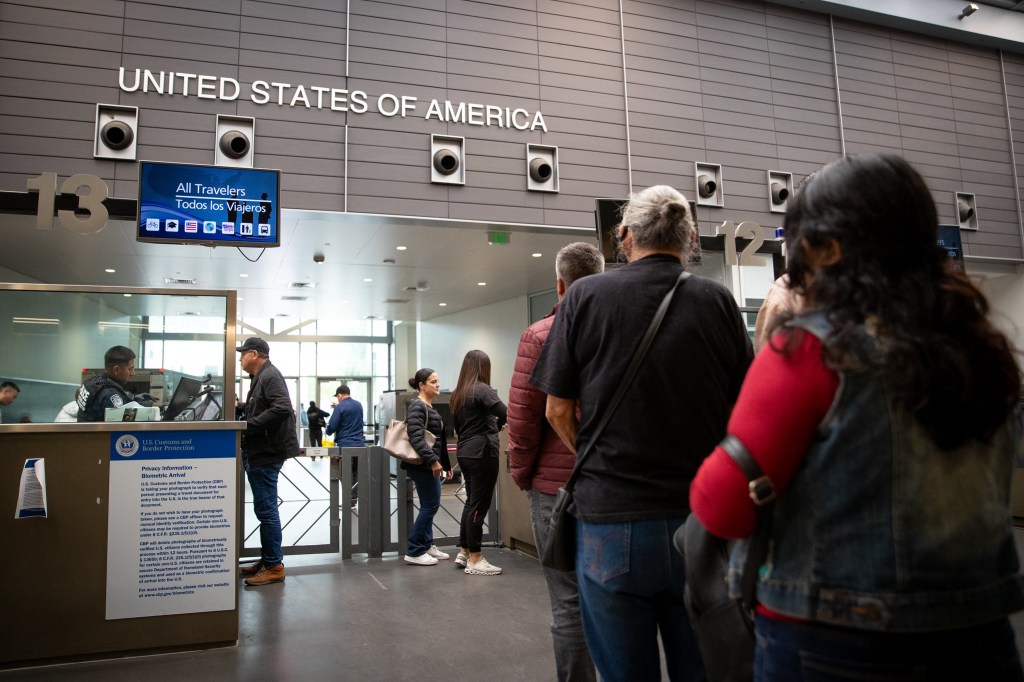
In July, a federal judge in New York ruled that the government must obtain a warrant to search a cellphone, even when the search takes place at the border. The judge’s opinion cited a friend-of-the-court brief submitted by the Reporters Committee and the Knight First Amendment Institute at Columbia University, writing that it “makes a persuasive case that warrantless searches of cellphones not only constitute an unjustified governmental intrusion into travelers’ private expressions of religion, personal associations, and journalistic endeavors — they also risk chilling the exercise of those rights.”
Since 2020, the Reporters Committee and the Knight Institute have teamed up to file several friend-of-the-court briefs urging federal courts to find that warrantless cellphone searches at the border are unconstitutional. As Reporters Committee Staff Attorney Grayson Clary explained in October, such searches pose a serious threat to journalists and their sources.
Policing and Corrections
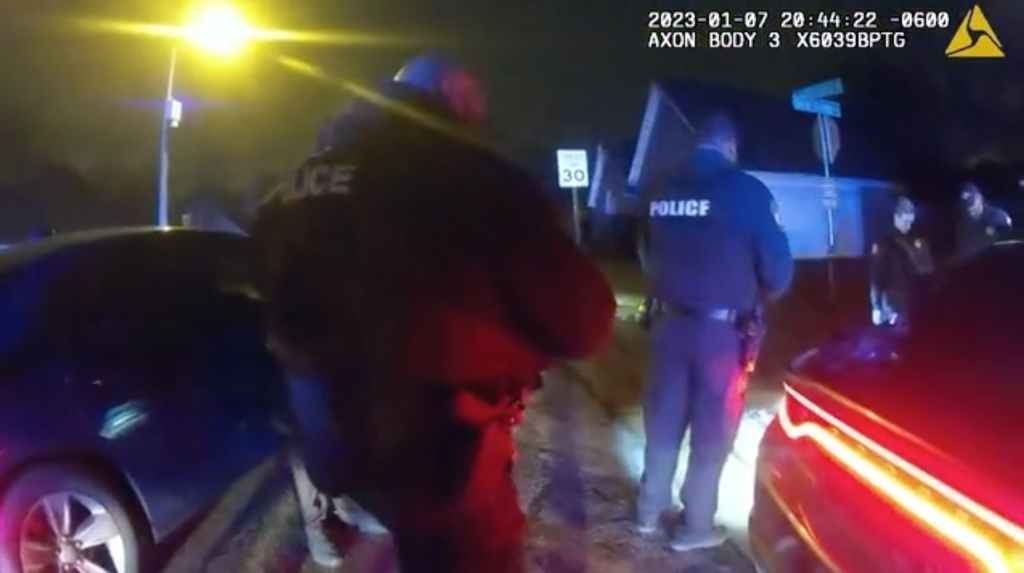
The city of Memphis and Shelby County released a cache of records, including 21 hours of bodycam videos and other recordings and 1,300 pages of documents, that provided context to recordings released last year showing police officers fatally beating 29-year-old Tyre Nichols during a routine traffic stop.
The records were made public after a media coalition — represented by Paul McAdoo, the Reporters Committee’s Local Legal Initiative attorney for Tennessee — successfully challenged two court orders prohibiting the city and county from disclosing public records they provided to the district attorney in the prosecutions of five former Memphis police officers charged with Nichols’s murder.
Many of the newly released videos captured the interactions of police officers and paramedics in the immediate aftermath of Nichols’s arrest, including officers’ conflicting accounts about how Nichols responded to their orders. The latest disclosures not only refocused the public’s attention on Nichols’s death, they also reminded the public why the fight for access to police recordings is worth waging.
Also in Tennessee, The Daily Memphian obtained surveillance videos showing correctional officers physically assaulting inmates at the Shelby County Jail in Memphis.
The surveillance footage was made public after McAdoo represented the newspaper in successfully moving to access video exhibits that had been filed with a federal court as part of a civil rights lawsuit that was settled last year.
“Our jail is a very dangerous place,” Daily Memphian reporter Ben Wheeler told the Reporters Committee. “People need to realize what is happening.”
In a huge win for press freedom, a federal district court in Indiana blocked the state from enforcing a law that makes it a crime to approach within 25 feet of a law enforcement officer after being told to stop, finding the law unconstitutionally vague.
The court sided with arguments made by Reporters Committee attorneys in a lawsuit filed last year on behalf of a coalition of journalism and news organizations, concluding that the police “buffer zone” law violates the Fourteenth Amendment because it fails to specify what kinds of behavior by a journalist or other member of the public might prompt an officer to issue an order to stay back.
Attorneys from the Reporters Committee and Sternberg Naccari & White LLC are also representing a media coalition in a separate lawsuit challenging a nearly identical police buffer zone law passed in Louisiana. That case, which was filed in July, is ongoing.
In Pennsylvania, journalist Brittany Hailer reached a settlement with Allegheny County that forced officials to revise several policies barring jail employees and contractors from speaking with the news media about matters of public concern without permission.
The first-of-its-kind agreement came more than eight months after Hailer filed a First Amendment lawsuit with legal support from attorneys at the Reporters Committee and the Yale Law School Media Freedom and Information Access Clinic. News of the agreement prompted the Society of Professional Journalists to call on journalists to follow Hailer’s lead and fight back against government policies that effectively silence employees.
“This settlement is of historic importance,” said SPJ National President Ashanti Blaize-Hopkins. “Gag rules are being adopted in all kinds of federal, state and local agencies, from congressional offices to schools and police departments. The settlement shows journalists that they can fight these widespread restrictions — and why they should.”
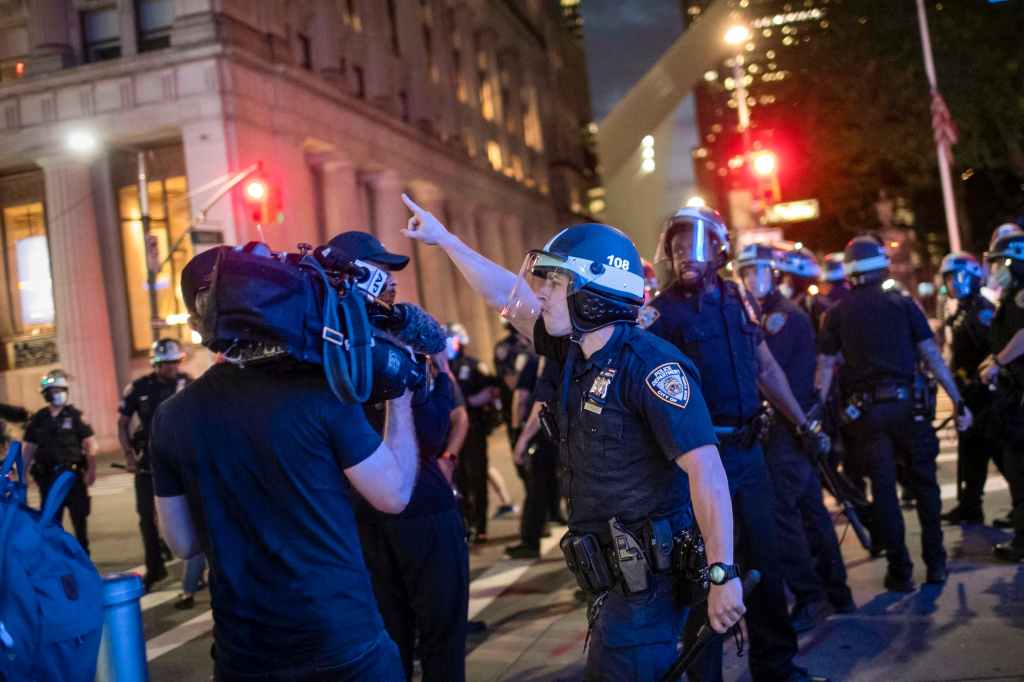
The U.S. Justice Department and the Police Executive Research Forum released a first-of-its kind set of best practices for police-press interactions at mass demonstrations — the result of a convening of police leaders and journalists, spearheaded by the Reporters Committee and PERF.
The report recommends, among other things, that police agencies adopt express “arrest avoidance” procedures that direct officers to let detained journalists go quickly, and that journalists be explicitly exempted from dispersal orders and curfew enforcement.
In an op-ed published in The Boston Globe, PERF Director Chuck Wexler and Reporters Committee Executive Director Bruce D. Brown highlighted how the best practices outlined in the report can better protect journalists and help police fulfill their public safety mission.
Following the release of the report, the Reporters Committee is setting up trainings focused on the recommendations with police departments and newsrooms across the country. In a related effort, the Reporters Committee also teamed up with the Institute for Nonprofit News to start providing press credentials for the newsrooms in INN’s network. The credentials are intended to give journalists, especially those in nontraditional and smaller newsrooms, an easy and direct way to identify themselves as members of the press while interacting with police, a key recommendation in the Justice Department’s report. The Reporters Committee’s free Legal Hotline number is printed on the back to ensure that reporters have our contact information in the event of an emergency.
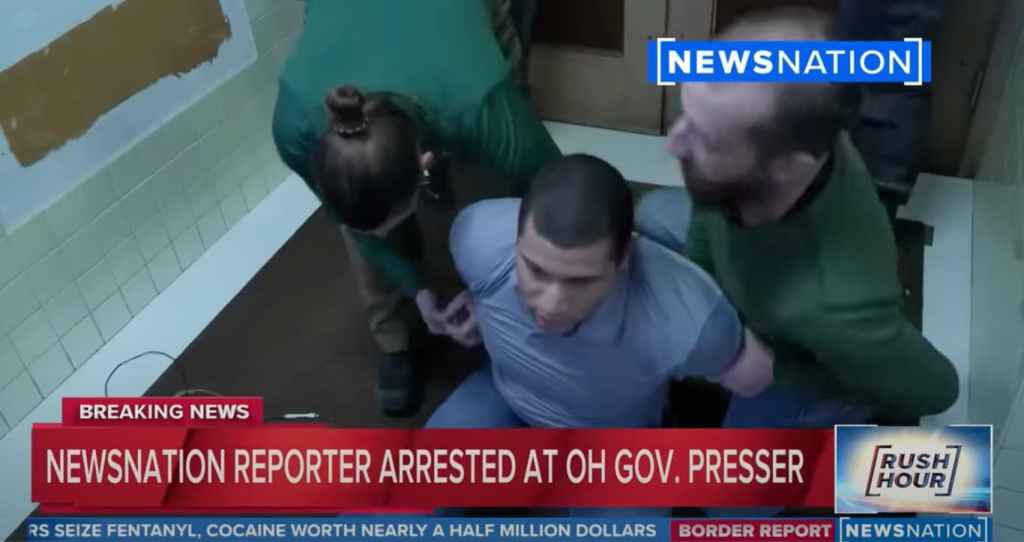
In February, a city and county in Ohio agreed to pay $112,000 to resolve NewsNation journalist Evan Lambert’s federal civil rights lawsuit, which stemmed from his unlawful arrest last year while covering a press conference about the derailment of a train carrying toxic chemicals in East Palestine, Ohio.
Attorneys from the Reporters Committee and the First Amendment Clinic at Case Western Reserve University School of Law represented Lambert in the case.
“We’re glad to have helped Evan obtain swift accountability — including a substantial judgment against the city and county — for an egregious arrest that never should have taken place,” said Katie Townsend, the Reporters Committee’s deputy executive director and legal director. “We hope this serves as a reminder to law enforcement in Ohio and elsewhere that reporters must be free to do their jobs without fear of arrest or other official retaliation.”
Lambert’s case was resolved roughly two months after attorneys from the Reporters Committee and Gibson, Dunn & Crutcher LLP helped Josie Huang, a reporter for NPR member station LAist 89.3, reach a $700,000 settlement agreement with Los Angeles County and the Los Angeles County Sheriff’s Department related to the journalist’s violent and unlawful arrest while covering a protest in 2020.
With free legal support from attorneys at the Reporters Committee and Cornell Law School’s First Amendment Clinic, the Bucks County Courier Times and the York Daily Record uncovered wrongful-death settlements involving PrimeCare Medical, a private contractor that has faced allegations of providing inadequate medical care to inmates in county prisons in Pennsylvania.
The two newspapers have successfully challenged the sealing of four such settlements, revealing that PrimeCare has paid hundreds of thousands of dollars to the families of inmates who have died in custody. Without free legal support, said Courier Times reporter Jo Ciavaglia, these records “would never see the light of day.”
Technology and Social Media
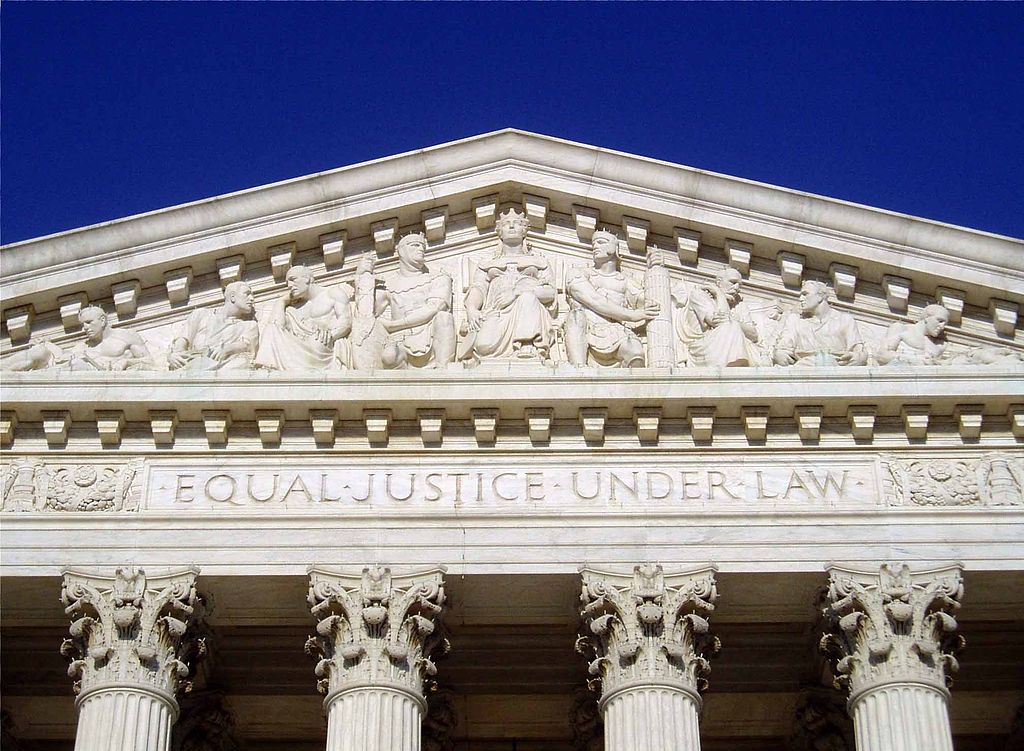
The U.S. Supreme Court handed down its decision in two landmark First Amendment cases — NetChoice v. Paxton and NetChoice v. Moody — where social media firms challenged laws in Texas and Florida, respectively, that sought to control how the platforms curated user content.
The justices declined to rule definitively on the cases’ merits, vacating each appeals court decision and sending them back to the lower courts for reconsideration. But the Supreme Court’s ruling made emphatically clear that social media platforms are protected by the First Amendment when they exercise editorial discretion.
As the Reporters Committee argued in several friend-of-the-court briefs — including one filed in the Supreme Court joined by representatives from the news media, book publishing, Hollywood, and the video game industry — the First Amendment forbids both direct interference with a private speaker’s exercise of editorial judgment as well as disclosure mandates that target the exercise of editorial judgment.
In a statement after the ruling, Reporters Committee Executive Director Bruce D. Brown said, “The Court reaffirmed and strengthened the principle at the core of the Constitution’s protections for a free press: The government never has a legitimate interest in enforcing its own vision of editorial fairness.”
In August, Reporters Committee attorneys helped tech journalist Jacob Silverman unseal a court record listing X Corp.’s shareholders.
The list of shareholders — which includes, among others, the founder of Twitter, a Saudi prince, and a hip-hop mogul — had previously been filed under seal as part of a civil lawsuit brought by former employees of Twitter. But a federal judge granted a motion Silverman filed to intervene in the case to unseal the corporate disclosure statement, finding that X Corp. “did not show good cause” to keep the document hidden from the public.
In a statement, Katie Townsend, the Reporters Committee’s deputy executive director and legal director, said the court’s ruling vindicates “the interest of the general public in knowing who owns X.”

A federal appeals court in California blocked the state from enforcing a law that requires large social media platforms to report how they moderate especially controversial categories of speech, finding that certain provisions of the law violate the First Amendment.
The Reporters Committee for Freedom of the Press had filed a friend-of-the-court brief urging that result, highlighting the danger that a ruling in California’s favor would also pose to the editorial independence of the press.
“The Ninth Circuit’s decision underlines that the government has no legitimate role in policing how private speakers decide which speech is fit to share with their audiences — one of the core constitutional principles on which the news media depends,” said Reporters Committee Staff Attorney Grayson Clary.
Celebrating Press Freedom
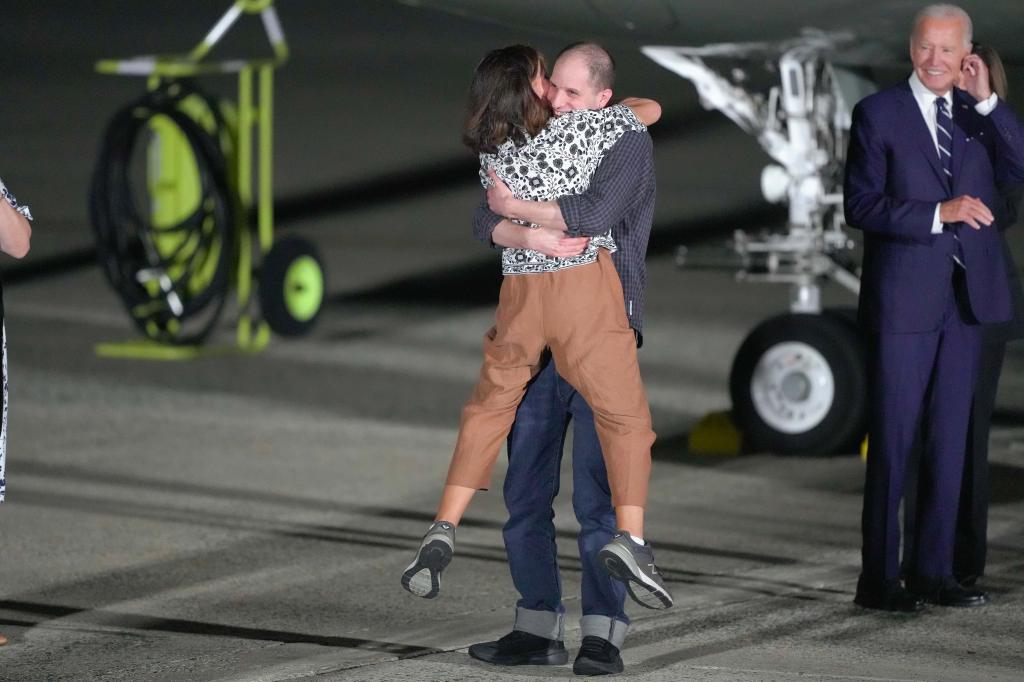
In August, the Reporters Committee was overjoyed by the release of three journalists — Wall Street Journal reporter Evan Gershkovich, Radio Free Europe/Radio Liberty journalist Alsu Kurmasheva, and Washington Post Opinions contributor Vladimir Kara-Murza — in a prisoner exchange between the United States, Russia, and several other countries.
“We look forward to once again reading and hearing the stories that each of these journalists bring to light,” Reporters Committee Executive Director Bruce D. Brown said in a statement. “A free and independent press underpins our democratic society and an informed global community, and any time a journalist is wrongfully arrested and imprisoned, it poses a grave threat to press freedom everywhere.”

In March, an immigration judge granted asylum to Mexican journalist Emilio Gutiérrez Soto and his son, Oscar, ending a 15-year fight that began when the two fled Mexico after Emilio’s investigative reporting on military corruption in the country led to death threats against him.
The welcome conclusion to the asylum case followed years of advocacy efforts by the National Press Club, the Wallace House Center for Journalists at the University of Michigan, and other press freedom groups, including the Reporters Committee. Attorneys from the Reporters Committee and Ballard Spahr supported the Gutiérrez Sotos through a federal Freedom of Information Act lawsuit on behalf of the National Press Club Journalism Institute and former NPCJI fellow and Missouri School of Journalism professor Kathy Kiely to obtain records related to the federal government’s treatment of the father and son.
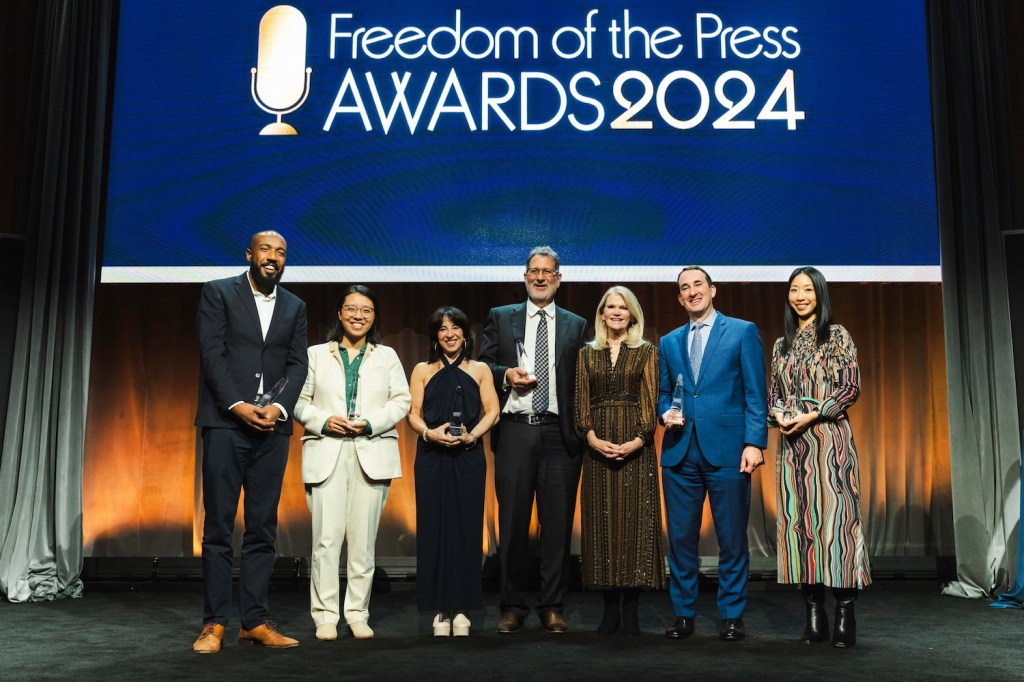
During our annual Freedom of the Press Awards, the Reporters Committee honored leaders in the news media and legal fields — and raised funds to be able to continue to support and defend the free press for years to come.
You can watch the videos celebrating this year’s award winners — Stephen Paul Engelberg, Maria Hinojosa, Josie Huang, Mazin Sidahmed, Sisi Wei, and the law firm Covington & Burling LLP — as well as remarks from the event on our YouTube channel.